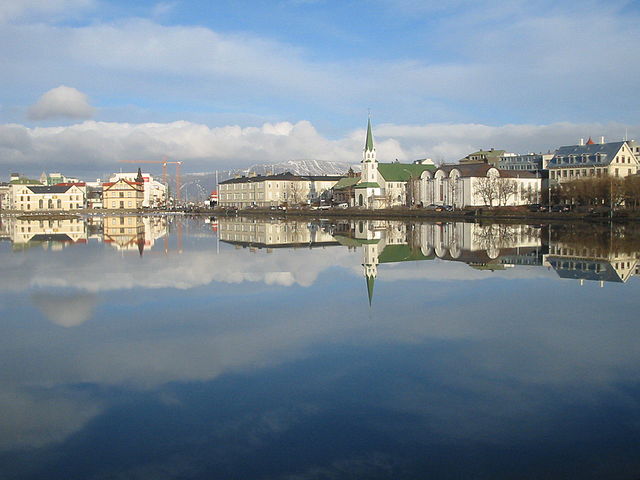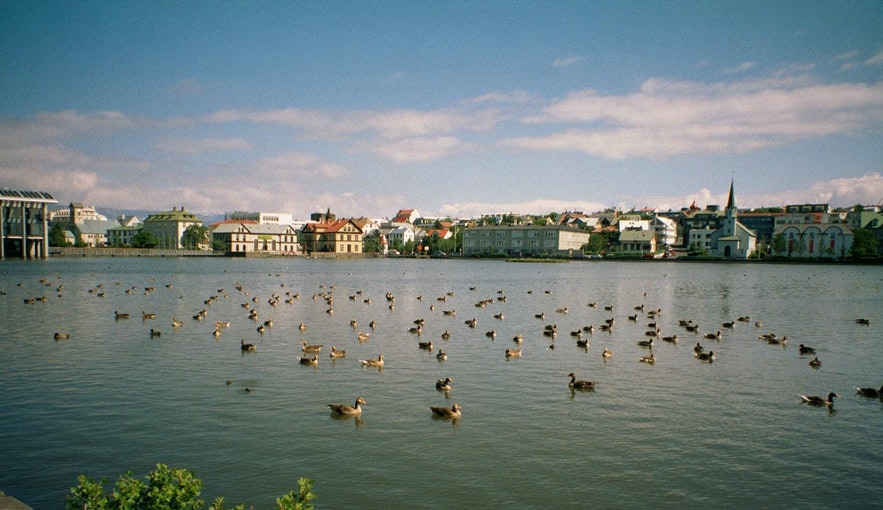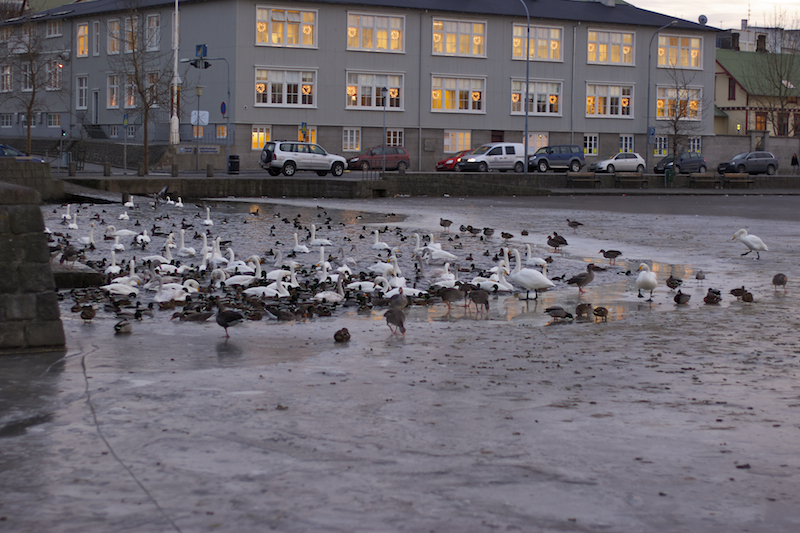The Biggest Bread Soup in the World

Pictured above is Tjörnin, a lake (well, it’s really a pond, but it’s called a lake) in the Icelandic capital of Reykjavík. If you’ve been to Reykjavík, you’ve probably been past Tjörnin; not only is the lake extraordinarily picturesque, but it’s also in a great location — city hall and many of Reykjavík’s museums overlook it. That’s not an accident; as the Guide to Iceland explains, “as the city’s central feature, urban development was focused around the lake,” first by housing wool and fabric workshops, and later becoming the municipal hub it is today.
But along the way, Tjörnin became a home for something else: a lot of birds, as seen below.
And to make that a year-round phenomenon, Tjörnin may be the world’s only lake with a hot tub.

In the early days of Reykjavík, Tjörnin was a prime hunting ground for those on a duck hunt. But in 1919, according to Iceland Magazine, authorities banned hunting. As a result, “the bird population has increased, with more species nesting at the pond” and today, the city takes steps to foster that experience; “the city exterminator removes the eggs of seagulls and destroys the nests of seagulls who attempt to settle at the pond, since seagulls prey on smaller birds and their nests,” per the magazine.
As a result, modern-day Tjörnin attracts a lot of different species of birds — the Guide to Iceland linked above claims that “over forty different bird species including Arctic Tern, Eider Ducks, Gadwalls. Greylag Geese, Seagulls, Scaup and Mallard Ducks” are usually around, and “quite often, one will also see Whooper Swans crowding together on the pond surface.” To laypeople, that may not mean anything, but to birders, it’s a big deal; fans of bird-spotting come from all over the North Atlantic to visit Tjörnin in hopes of seeing a bird they’ve never seen before. There are so many people that come to feed the birds that one children’s poem described the lake as “stærsta brauðsúpa í heimi,” which translates to “the biggest bread soup in the world.”
But in normal conditions, that can’t happen year-round. Tjörnin, like any other pond or lake in Iceland, freezes over for part of the winter. And the forty species of birds that would visit aren’t going to bother if they can’t go for a swim and grab a bite to eat. That’d be bad for tourism and bad for the birds (maybe — they’d probably find another place to hang out), so authorities came up with a solution. During the winter, in the northeast corner of Tjörnin, “the city uses hot water to maintain the temperature of the water here above freezing,” per Iceland Magazine. As a result, you’ll see this:

Lots of ice everywhere — except for one little carveout. And in that carveout come the birds. (If you want more images from other angles, click here or here.)
And in fact, if you really want to feed the birds, it may be better for you to come to Tjörnin during the winter. Not only will they all be gathered in one place, but it may be more bird-friendly anyway. In 2013, Reykjavík officials put out an advisory, asking residents (and visitors by extension) to not feed the birds in the summer months. Per a local news report, feeding the birds during those months “puts ducklings at an increased risk from preying seagulls,” and the baby ducks are “particularly vulnerable during the months of June and July when egg hatching and chick raising is at its peak.” The bread attracts seagulls who, while they’re in the area, may grab a duckling to round out their meal.
Bonus fact: In the United Kingdom, there’s a royal officeholder called the Marker of the Swans, whose role is to organize a swan event on the Thames each year and, in general, to advise organizations on issues surrounding swan welfare. (It’s a pretty niche role.) And in 2018, he had reason to intervene in a public engagement campaign. A group led by a pet food company — and working with swan conservatories, so it isn’t all that crazy that this happened — started an effort to get people to stop feeding bread to swans, as it isn’t all that nutritious and swans deserve better diets. All well and good, sure, but the swans didn’t really like the idea. The Queen’s Swan Marker, David Barber, told the press that he was “receiving reports of underweight cygnets and adult birds, and a number of swans from large flocks have begun to wander into roads in search of food” and asked people to resume tossing bread (“provided it is not moldy”) to their avian neighbors.
From the Archives: Jólabókaflóð: A fantastic Icelandic tradition.
